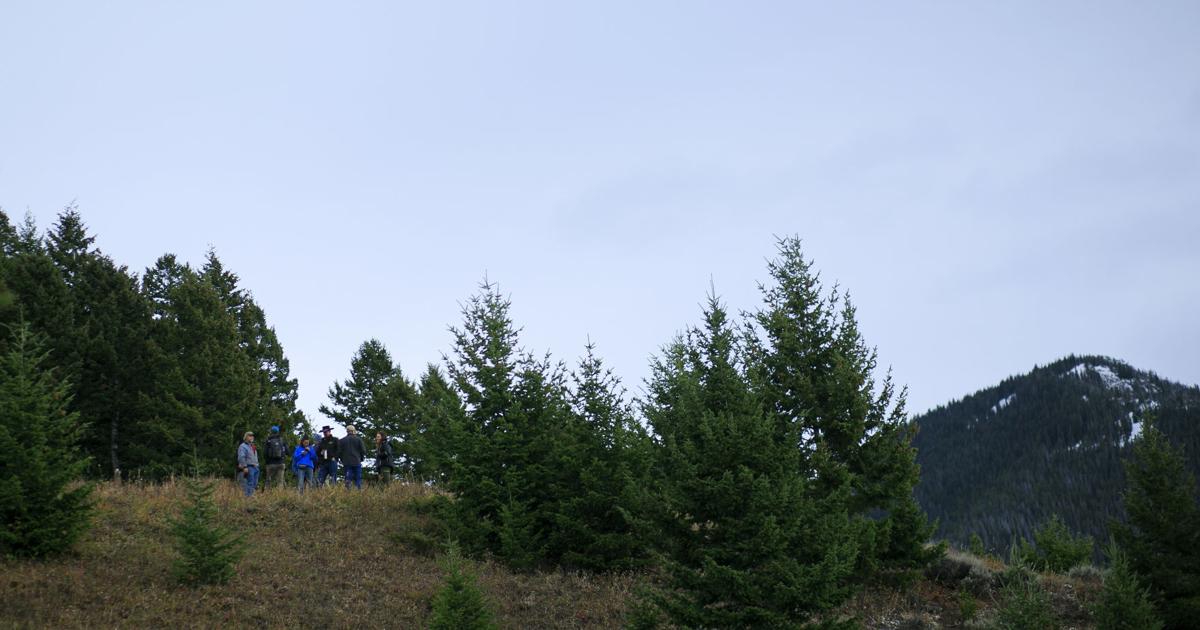Outrageous Mountain access proponents endured one more defeat on Wednesday after U.S. District Court docket Judge Susan P. Watters adopted “in full” a February ruling by U.S. Magistrate Decide Timothy J. Cavan.
Close friends of the Mad Mountains, Boosting Montana’s Wildlife & Habitat, the Skyline Sportsmen Affiliation and Montana Backcountry Hunters and Anglers had appealed Cavan’s results. The groups contended the Custer Gallatin National Forest had not acted appropriately in rerouting a trail on the west facet of the mountain vary and walked absent from trail routine maintenance on the east side. Landowners also joined in the lawsuit on the Forest Service’s facet.
The Insane Mountains include a checkerboard of landownership, with private and federal holdings interconnected and occasionally isolated. The access groups experienced contended the Forest Service erred in its management of four trails by not defending prescriptive accessibility legal rights on routes that day back again to the early 1900s. The company countered that it experienced properly regarded possibilities and pursued the greatest action for the Forest Service. Landowners disputed that the company experienced obtain rights on the aged routes.
People are also reading…
In 2018, the Forest Assistance arrived at an agreement with landowners to reroute the Porcupine-Lowline Trail in return for an easement throughout a portion of personal land. The path opened to the general public previous calendar year. Entry teams contended the reroute wasn’t adequately regarded as and vetted by the public.
In his findings, Cavan wrote that he was necessary to ascertain whether or not the Forest Service’s actions were being “arbitrary, capricious, an abuse of discretion or otherwise not in accordance with the law.” He mentioned the “’arbitrary and capricious’ regular is slim, and the court docket may possibly not substitute its judgment for that of the agency.” He was therefore essential to make a decision no matter whether the Forest Services experienced “considered the relevant aspects or created a apparent error of judgment.”
Watters upheld Cavan’s final decision declaring that the access groups had “failed to display that the USFS did not consider a ‘hard look’ at the environmental impacts of the undertaking.” The judge also agreed with Cavan that the Forest Service did not fall short to “protect current entry rights” simply because there was no legitimate legal desire in the probable easements.
“When we commenced this journey, we understood the crucial yet novel nature of our litigation and that our greatest authorized chances would be on attraction,” wrote John B. Sullivan III, chairman of the Montana Chapter of Backcountry Hunters and Anglers, in an email. “This determination is not surprising, and it reaffirms our anxiety that almost nothing in the legislation prohibits the U.S. Forest Services from abandoning lawful community accessibility in favor of the rich and politically perfectly-related. When persons lament the transition of the West to a playground for only the wealthy, we need search no even further than the conclusions presently becoming built by the Forest Assistance in the Custer Gallatin Nationwide Forest as facilitating that transition.”
Sullivan included that his group will continue to combat for public access.
“Judge Watters’ ruling does almost nothing to modify the elementary points of this scenario: The U.S. Forest Services intentionally deserted historic general public access – which they admitted in open up courtroom – at the ask for of a few politically properly-connected landowners, with out any general public involvement,” Sullivan explained.
Watters wrote in her locating that courts are prevented from getting into into “day-to-day management,” which is what the groups had been requesting with their protest of abandonment of the east aspect trails.







More Stories
Cape Town’s Big Six: Table Mountain
5 Essential Tips For Hiking With Kids For The First Time
This Is Why You Need To Go To Mt. Kenya – Part 4